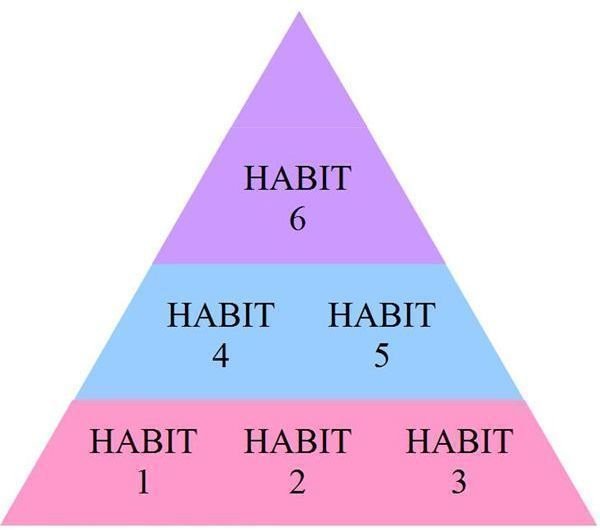Developing Successful Teams: 6 Habits of Highly Effective Teams
There are many theories about what makes teams thrive – those that address leaders, members, tasks, and personality traits. However, Stephen Kohn and Vincent O’Connell provide a unique way of exploring team performance in their book Six Habits of Highly Effective Teams. They believe that the core component of successful teams is positive relationships – among team members, between individual members and the team, and between the team and external groups.
Six Habits of Effective Teams
These six habits form an interlocking pyramid of integrated habits: the foundation consists of developing caring skills; the mid-level focuses on process-oriented habits; and the capstone habit addresses trust and roles.
Habit 1: Strengthen Emotional Capacity
The foundation of team effectiveness focuses on exploring, understanding, and developing emotional awareness within individual team members and then transferring that awareness to the overall emotional intelligence of the team, thus making team members more receptive to client needs and improving member-client relations.
Habit 2: Expand Team Self-Awareness
Kohn and O’Connell insist that a team’s identity is driven less by its name than by its mission, values, strengths, and client perceptions. Therefore, to increase overall effectiveness, members must know where they fit in the team’s structure, and the team needs to identify its purpose in a mission, vision, and values statement.
Habit 3: Practice Empathy and Respectfulness
Gaining a better understanding of customers’ concerns, dilemmas, and desires allows team members to relate to customers and provide better service and products. Members also need to practice empathy and respectfulness toward fellow team members to facilitate interdependence.
Habit 4: Establish and Regulate Team Norms
It is very important for team members to abide by team and company values, norms, and policies. Establishing and maintaining healthy group norms positively influences a team’s functional capabilities, which greatly impacts productivity. Additionally, all team members, regardless of position, status, or tenure, must be subjected to the same expectations.
Habit 5: Think Laterally
Kohn and O’Connell (2007, p. 163) state that “Clients…seek a team that can assess a problem, break new ground, and create a competitive edge." Therefore, in order for teams to adequately address client needs and surpass expectations, leaders must encourage out-of-the-box thinking without criticism or reprimand.
Habit 6: Entrust Team Members with Appropriate Roles
To enhance team interdependence, members must be aware of individual responsibilities and roles. Furthermore, in order for team members to feel comfortable delegating tasks, they must trust one another, which only exist through honesty, mutual accountability, and hard work.
Exercises to Develop Habits of Effective Teams
Strengthen Emotional Capacity
- Devote time to help members identify and understand emotional capacity through role-playing and reenactment.
- Discuss the benefits of including an emotional or relational aspect in team activities and brainstorm ways to incorporate emotional awareness in daily tasks.
Expand Team Self-Awareness
- Develop a shared mission that identifies common goals, values, and expectations.
- Choose a team name that embodies the shared mission and serves as a constant reminder of the team’s goals and values.
Practice Empathy and Respectfulness
- Provide opportunities for members to rotate among jobs, cross-train, and shadow other team members to promote respect and understanding for other roles and responsibilities.
- Instill an understanding that everyone is important and not one person is the backbone of the team.
Establish and Regulate Team Norms
- Revise the employee handbook to identify overall company goals, values, and purpose.
- Review the guidelines enforced by management and create team-specific rules for proper behavior, expectations, attitudes, and language to ensure consistency.
Think Laterally
- Implement programs that encourage healthy competition among team members to generate new ideas and develop out-of-the-box solutions.
- Devote time to brainstorm ways that teams can be more innovative and creative in services, products, and processes.
Entrust Team Members with Appropriate Roles
- Revise job descriptions to ensure alignment with team goals and company policies and articulate team member responsibilities clearly and concisely.
- Devote time to trust-building activities that showcase individual accomplishments toward a common goal.
